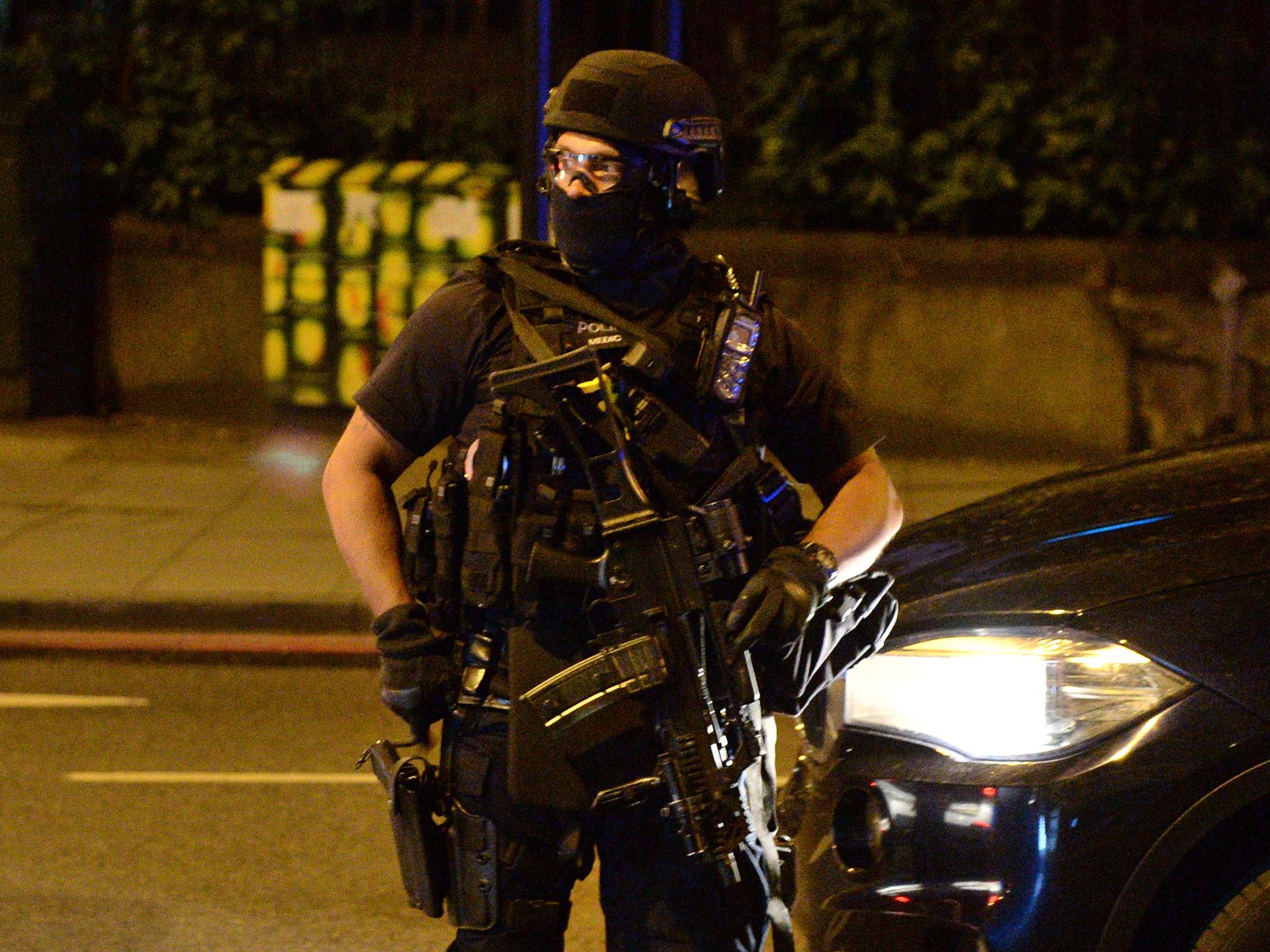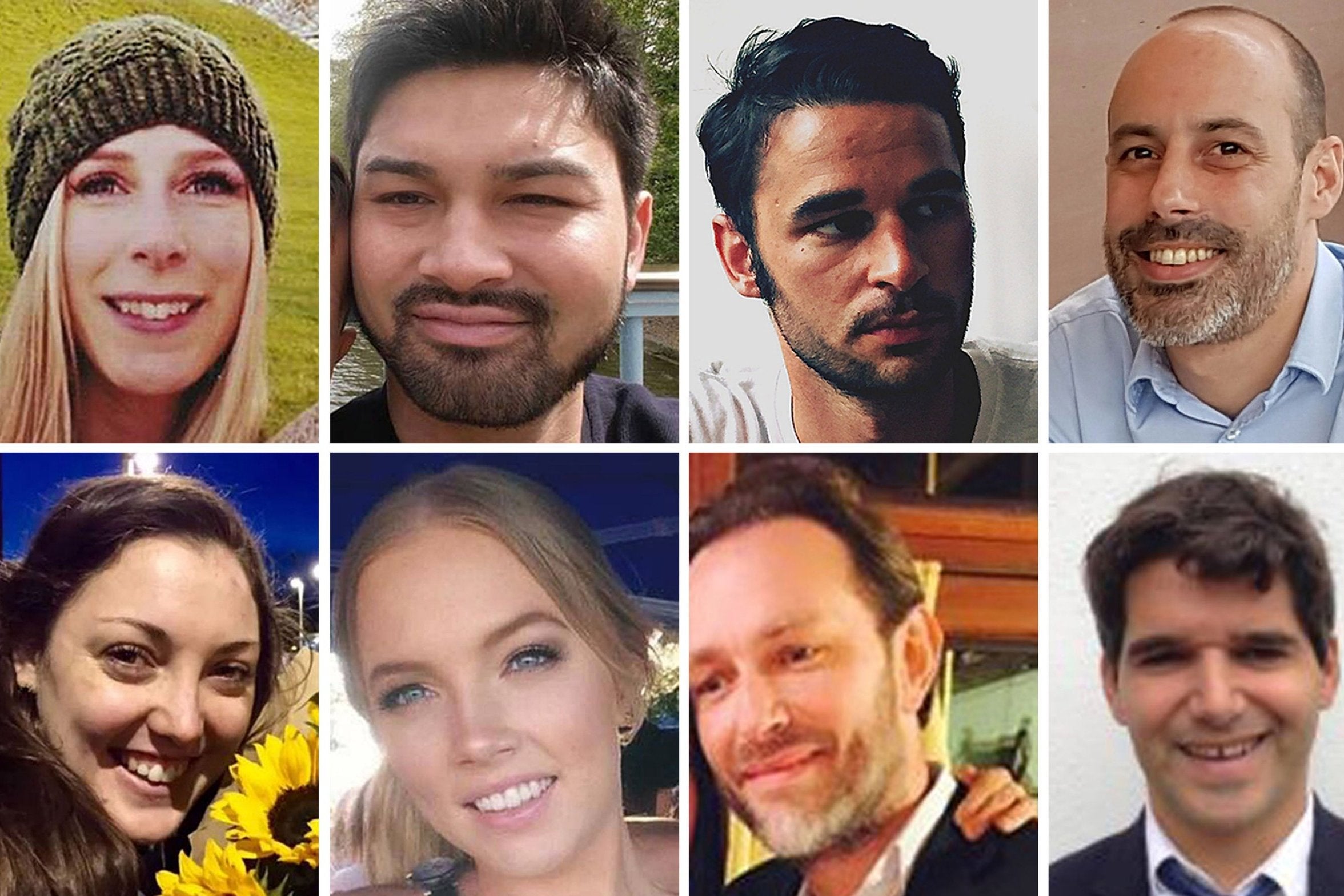London Bridge attack: Mystery of man spared by knife-wielding terrorists who paused rampage to speak to him before walking away
‘We don’t know what was said and despite witness appeals the man never came forward,’ police officer tells inquest

Your support helps us to tell the story
From reproductive rights to climate change to Big Tech, The Independent is on the ground when the story is developing. Whether it's investigating the financials of Elon Musk's pro-Trump PAC or producing our latest documentary, 'The A Word', which shines a light on the American women fighting for reproductive rights, we know how important it is to parse out the facts from the messaging.
At such a critical moment in US history, we need reporters on the ground. Your donation allows us to keep sending journalists to speak to both sides of the story.
The Independent is trusted by Americans across the entire political spectrum. And unlike many other quality news outlets, we choose not to lock Americans out of our reporting and analysis with paywalls. We believe quality journalism should be available to everyone, paid for by those who can afford it.
Your support makes all the difference.The London Bridge attackers paused their stabbing rampage to talk to an unidentified man and then spared his life, it has been revealed.
Inquests into the atrocity have heard how the three terrorists murdered eight people and injured 48 more with a van and knives.
Graphic footage played to the Old Bailey on Wednesday showed the trio moving around the Borough Market area as a pack, stabbing and slashing any man or woman within reach while shouting “Allahu akbar”.
Investigators have mapped the movements of Khuram Butt, Rachid Redouane and Youssef Zaghba in detail, plotting the points where each of their victims fell.
But police admitted they do not understand one incident caught on camera, where a man was left unharmed for unknown reasons.
Footage played to the court showed a man walking alone down a road adjoining Borough Market, holding his phone.
Redouane is seen jogging towards him holding his 12in knife, which was taped to his wrist.
The CCTV, which is silent, shows the pair briefly speaking to each other before the man is allowed to walk on unharmed, turning to say something to the attackers as he leaves.
“There’s clearly some form of discussion,” said Detective Superintendent Becky Riggs, from the Metropolitan Police counterterror command. "We don’t know what was said, we never identified that man and regardless of appeals for a witness, he never came forward."
The terrorists then continued their stabbing rampage in restaurants in Borough Market, including Black & Blue.
Footage played to the Old Bailey showed them entering the restaurant’s bar as Millwall fan Roy Larner was sat at a table.
It shows him briefly speaking to the terrorists before Redouane stabs him repeatedly. Mr Larner is seen standing and trying to fight the attackers, even as he is stabbed again.
The court heard that Butt then ordered journalist Geoff Ho to lie down on the floor, and stabbed him in the throat.
Zaghba went behind the bar and drank from the tap, before Butt calmly washed his knife and wiped it on his beard in what Jonathan Hough QC, the counsel to the inquests, called a “chilling gesture”.
Footage played to the court showed several victims and members of the public fighting the attackers.
PC Charlie Guenigault was seen kicking Butt as he was being knifed on the ground.
Another clip showed a man throwing a drink over Redouane after being stabbed in the back.
The court heard that at one point, the trio started moving towards unarmed police officers.
Footage showed the officers making desperate radio calls for armed backup before turning and telling members of the public to run, fleeing with them.
An armed unit from City of London Police arrived at Borough Market shortly afterwards, as the terrorists stabbed the last of the 56 victims they killed or injured.
Even as three officers got out of their car and took aim, members of the public were throwing missiles at the terrorists, footage showed.
Two bakers had run to the scene with large bread crates, while drinkers were pelting the attackers with chairs and glass bottles.
Armed police officers were forced to run backwards and open fire as the terrorists charged towards them with their knives and fake suicide vests.

The court heard that in the following minutes, the three men were shot more times on the ground because officers feared they were moving and could detonate the vests.
A man in a nearby pub was accidentally hit in the head by a police bullet but survived, while other bystanders were injured by shrapnel.
The attackers’ deaths will be examined before a jury, in separate inquests coming after an estimated eight weeks of hearings for their victims.
Christine Archibald, 30, and Xavier Thomas, 45, were hit by the terrorists’ van before it crashed.
Alexandre Pigeard, 26, Sara Zelenak, 21, Kirsty Boden, 28, Sebastien Belanger, 36, James McMullan, 32, and Ignacio Echeverria, 39, were all stabbed to death.
Gareth Patterson QC, representing six of the victims’ families, questioned whether barriers which were installed on London Bridge after the attack would have saved two of those killed.
He told the court that despite calls for changes to hire rules following the Westminster attack in March 2017, “there wasn’t a single obstacle for a terrorist renting a vehicle”.
Mr Patterson said it only took an hour of phone calls for Butt to hire the van from Hertz, even though the known Islamist had been under investigation by both MI5 and counterterror police.
He told the court that despite a voluntary security scheme, there is “nothing of any substance to this day that stops you getting your hands on a vehicle like that if you want to commit a terrorist attack”.
Det Supt Riggs acknowledged that both Isis and al-Qaeda had released propaganda magazines containing advice on carrying out vehicle attacks, but said that a report outlining the specific vulnerability of London Bridge was not seen by Scotland Yard until February 2018.

After Alexandre Pigeard’s father questioned why British police were not routinely armed, Mr Patterson said unarmed officers were on the scene a minute after the attack started.
He told the court the batons they carried were “wholly unequal to what they faced when they arrived at the scene”, adding: “Had they been able to stop the attack at that stage, something like 20 people stabbed after that point may not have received those injuries.”
Det Supt Riggs said officers had “full protective equipment” and that it would be speculation to say what might have happened.
Dominic Adamson, a lawyer representing Xavier Thomas’s family, questioned why he was not rescued from the River Thames on the night of the attack.
The inquest heard his body was found three days later, with the cause of death found to be immersion in water.
According to the transcript of a 999 call, a man told an operator he saw someone being hit by the van and thrown into the river.
The caller said they were walking along London Bridge southbound when they “heard the smashes and the screams ... I saw someone actually being hit, thrown into the river.
“The person didn’t swim or anything, the body will have been carried down the river a bit. It’s too bloody awful for words.”